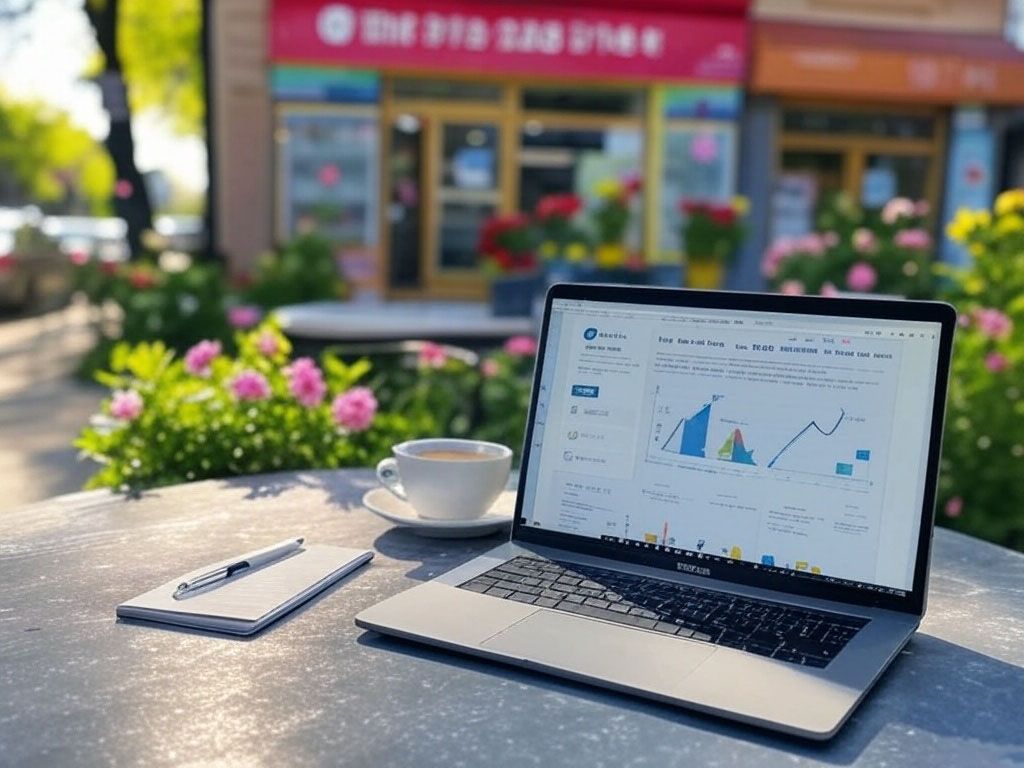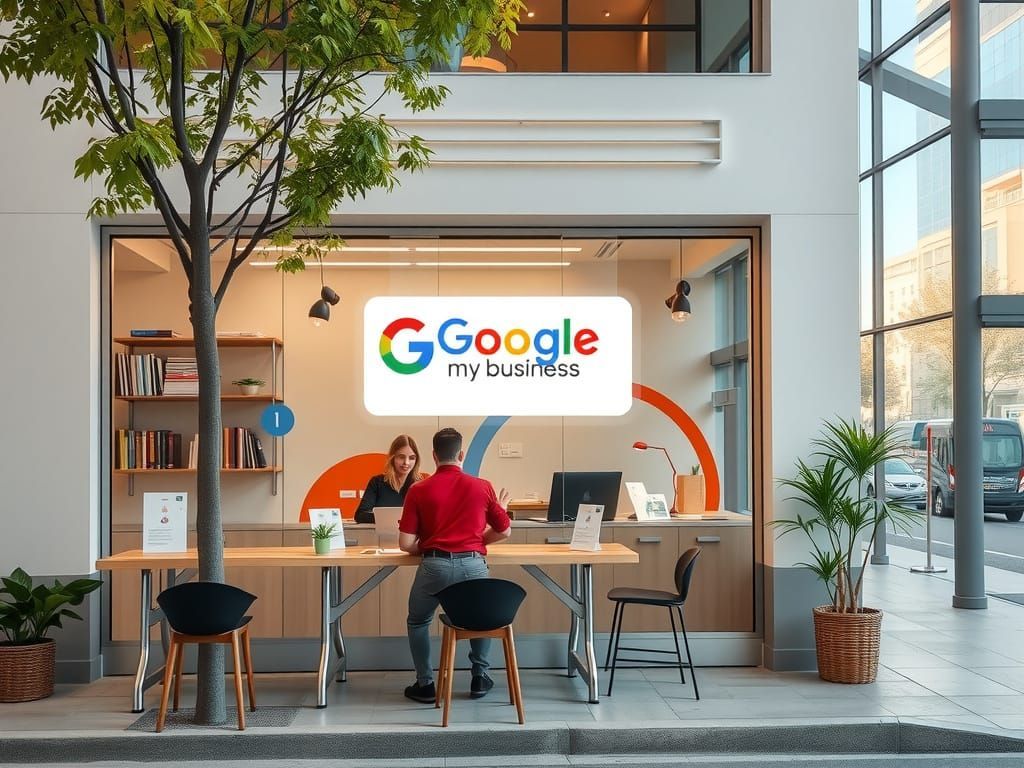10 Effective SEO Tips for Small Businesses in Manchester to Boost Online Presence
In an increasingly digital world, small businesses in Manchester must prioritise their online presence to attract potential customers. Search engine optimisation (SEO) is a crucial strategy that helps businesses rank higher in search engine results, thereby improving visibility and driving traffic to their websites. This article presents ten effective SEO tips tailored for small businesses looking to enhance their online visibility and overall SEO performance.
What are the Best SEO Tips for Small Businesses?
How to Optimise Your Website for Local SEO?
Local SEO is essential for small businesses in Manchester, as it focuses on optimising your online presence to attract local customers and help small businesses to increase their visibility. To effectively optimise your website for local SEO, ensure that your business information, such as your name, address, and phone number (NAP), is consistent across all platforms. Incorporate relevant local keywords throughout your website's content, including in titles, headings, and meta descriptions. Additionally, creating location-specific content can enhance your website’s SEO by making it more relevant to local search terms. Utilising schema markup can also help search engines understand your business better, which improves your chances of ranking higher in local search results.
What is On-Page SEO and How to Implement It?
On-page SEO refers to the practice of optimising individual web pages to rank higher and earn more relevant traffic. As a small business owner, implementing effective on-page SEO strategies is crucial for maximising your website's performance. Start by ensuring that your website is user-friendly and mobile-responsive, as this impacts both user experience and search engine ranking. Use headings and subheadings to organise your content, making it easier for search engines to crawl your site. Additionally, optimise your images by using descriptive file names and alt tags. Internal linking can also improve your site’s navigation and boost the SEO performance of your entire small business website.
Why is Keyword Research Important for Small Business SEO?
Conducting thorough keyword research is vital for small business SEO as it helps identify the search terms potential customers use to find products or services like yours. By understanding these keywords, business owners can create content that aligns with the interests of their target audience. Utilise tools like Google Keyword Planner and Google Search Console to analyse search volume and competition for specific keywords. Focusing on long-tail keywords, which are more specific and less competitive, can also enhance your chances of ranking higher in search engine results. Ultimately, effective keyword research allows you to tailor your content strategy and improve your SEO efforts.
How Can Small Businesses Improve Their SEO Performance?
What SEO Strategies Work Best for Small Business Owners?
Implementing the right SEO strategies is key to improving your SEO performance as a small business owner. Start by optimising your Google My Business profile, which is crucial for local search visibility. Ensure that your profile is complete and regularly updated with accurate business information, including your hours of operation, services offered, and customer reviews. Additionally, consider creating high-quality blog content that addresses your audience's questions and interests. Engaging with your audience on social media can also drive traffic to your website, enhancing your overall SEO strategy. Consistent monitoring of your website traffic through analytics tools will help you identify areas for improvement and refine your strategies over time.
How to Use Google Analytics for SEO Enhancement?
Google Analytics is an invaluable tool for small businesses aiming to enhance their SEO performance. By analysing website traffic, business owners can gain insights into user behavior, demographics, and traffic sources. This data allows you to identify which search terms are generating the most traffic, enabling you to adjust your content strategy accordingly. Moreover, tracking bounce rates and user engagement metrics can help you improve your website's SEO by identifying which pages need optimisation and ensuring they align with SEO best practices. Regularly reviewing your Google Analytics reports will ensure that you stay informed about the effectiveness of your SEO strategies and can make data-driven decisions to improve your online presence.
What Role Does Google My Business Play in Local SEO?
Google My Business (GMB) is a powerful tool for local SEO that allows small businesses to manage their online presence across Google, including Search and Maps. Creating and optimising your GMB profile can significantly impact your visibility in local search results. Ensure that your profile includes accurate business information, captivating images, and up-to-date service offerings. Encourage satisfied customers to leave positive reviews, as this can enhance your credibility and attract more potential customers. Additionally, utilising GMB features such as posts and Q&A can help engage your audience and keep your business information fresh, further boosting your local SEO efforts.
How to Conduct Effective Keyword Research for Your Small Business?
What Tools are Available for Keyword Research?
Effective keyword research is the foundation of a successful SEO strategy that helps small businesses to increase their search traffic. Several tools can assist small business owners in conducting comprehensive keyword research to help small businesses to increase their online presence. Google Keyword Planner is a popular choice, providing insights into search volumes and competition levels for various keywords. Other valuable tools include Ahrefs, SEMrush, and Moz, which offer advanced analytics and keyword suggestions tailored to your niche. These tools can help identify relevant keywords that align with your business goals, enabling you to create targeted content that attracts organic traffic and improves your SEO ranking.
How to Choose the Right Keywords for Your Business?
Choosing the right keywords involves a strategic approach that considers both relevance and competition. Start by identifying keywords that are directly related to your products or services. Look for terms that potential customers are likely to use when searching for your offerings. Utilise the keyword research tools mentioned earlier to analyse search volume and competition. Prioritise long-tail keywords, which are generally less competitive and more specific to your business. This targeted approach ensures that you attract the right audience, ultimately leading to higher conversion rates and better SEO performance.
How to Analyse Keyword Competition for Better Ranking?
Analysing keyword competition is crucial for small businesses aiming to rank higher in search engine results. Begin by assessing the difficulty level of your chosen keywords using tools like SEMrush or Ahrefs, which provide insights into how competitive a keyword is based on the current top-ranking sites. Examine the domain authority of competitors and the quality of their content. If a keyword appears overly competitive, consider focusing on variations or long-tail keywords with lower competition. By understanding your competition, you can tailor your content and strategy to improve your chances of ranking higher and attracting organic traffic through effective SEO for small businesses in Manchester.
What SEO Services Should Small Businesses Consider?
How Much Does SEO Cost for Small Businesses?
The cost of SEO services for small businesses can vary widely based on factors such as the scope of work, the size of your business, and the desired outcomes. On average, small businesses can expect to pay anywhere from a few hundred to several thousand dollars per month for comprehensive SEO services. It’s essential to evaluate your budget and consider the potential return on investment. Investing in SEO can lead to increased website traffic, higher rankings, and ultimately, more sales, making it an essential part of digital marketing for small businesses. As a small business owner, it’s crucial to find a reputable SEO service provider that fits your budget and aligns with your business goals.
What Can You Expect from an SEO Specialist?
Hiring an SEO specialist can significantly enhance your small business's online presence. An experienced SEO specialist will conduct a thorough SEO audit of your website, identifying areas for improvement and developing a tailored strategy for your business. You can expect ongoing keyword research, content optimisation, and technical SEO enhancements aimed at improving your website's performance and increasing search traffic. Furthermore, a good SEO specialist will provide regular reports and updates on your SEO performance, helping you understand the impact of their efforts and any necessary adjustments to your strategy.
How to Evaluate the SEO Work of Your Service Provider?
Evaluating the SEO work of your service provider requires a combination of metrics and communication to ensure adherence to SEO best practices. Start by setting clear goals and expectations for your SEO for small businesses before the work begins. Regularly review performance metrics such as website traffic, search engine rankings, and conversion rates. An effective SEO provider will offer transparent reporting and be willing to discuss strategies and outcomes with you. If your provider is achieving measurable results, such as increased visibility and organic traffic, it’s likely that they are effectively improving your SEO. Don’t hesitate to ask for clarification on their methods and results to ensure that you are receiving the best possible service.
How Can Local SEO Benefit Small Businesses in Manchester?
Why is Local Search Important for Local Businesses?
Local search is crucial for small businesses in Manchester due to the high competition and the need to connect with nearby customers. Most consumers use search engines to find local businesses, making it essential for your business to appear in local search results. By optimising your online presence for local search, you can attract potential customers who are actively seeking your products or services in your area. This targeted approach not only increases your visibility but also fosters community engagement, as local customers are more likely to visit your physical location and support your business.
How to Optimise Your Google Business Profile?
Optimising your Google Business Profile is a vital step in enhancing your local SEO. Ensure that all information is accurate and complete, including your business name, address, phone number, and website URL. Use high-quality images that showcase your products or services to attract potential customers. Regularly update your profile with posts, special offers, and events to keep your audience engaged and improve SEO. Encouraging satisfied customers to leave reviews can also enhance your credibility and attract more business, which is relevant to your digital marketing efforts. By optimising your Google Business Profile, you can significantly improve your local search visibility and drive traffic to your website.
What are the Best Practices for Local SEO Ranking?
To achieve optimal local SEO ranking, small businesses should adhere to several best practices that help small businesses to increase their visibility in search results. Start by ensuring consistency in your business information across all online platforms, including your website, social media, and online directories. Incorporate local keywords in your website content, meta descriptions, and title tags. Utilise customer reviews and ratings to enhance your online reputation, as this can influence potential customers' decisions. Regularly update your content and engage with your audience on social media to build community connections. Finally, monitor your local SEO performance using tools like Google Analytics to identify areas for improvement and adapt your strategies accordingly.
We’re Ready When You Are
See What We Can Do For Your Business


At Leads Nurtured, our mission is clear: to empower business owners in expanding their ventures.
As a rapidly growing specialist in Lead Generation, we're dedicated to serving various regions.
Explore the areas we cater to here.
Solution
Company
Award-Winning
Lead Generation Agency
COTERSA Limited t/a Leads Nurtured, 3rd Floor, 86-90 Paul Street, London, EC2A 4NE, UK
is a registered company in England & Wales number 13111232
COTERSA Limited t/a Leads Nurtured. All Rights Reserved.
















